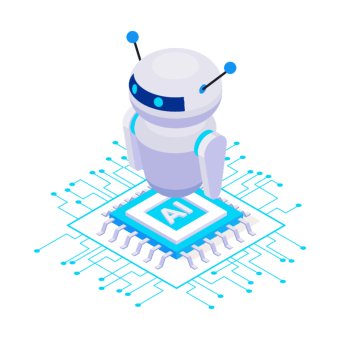
July 24, 2023, 8:17 am
In recent years, the healthcare industry has witnessed significant advancements in technology, and dental practices are no exception. Artificial Intelligence (AI) has emerged as a game-changer in various fields, and its integration into dental practices is transforming the way dental professionals manage their clinics. AI's capabilities go beyond automating routine tasks; it offers innovative solutions that enhance efficiency, patient care, and overall practice management.
1. Automating Administrative Tasks
Dental practices often deal with a multitude of administrative tasks that can be time-consuming and repetitive. AI-powered tools can automate appointment scheduling, reminders, and follow-ups, reducing the administrative burden on staff. This automation not only saves time but also minimizes the risk of human errors in managing appointments and patient communications.
2. Enhancing Patient Engagement
AI can enhance patient engagement and communication by providing personalized interactions. AI-driven chatbots can answer common patient queries, offer appointment availability, and share information about dental procedures and post-operative care. Patients receive instant responses, improving their overall experience and increasing their confidence in the practice.
3. Optimizing Treatment Planning
AI applications can aid dental professionals in treatment planning and decision-making. AI algorithms can analyze patient data, including medical history and radiographs, to provide insights and suggestions for optimal treatment plans. This data-driven approach helps dentists make well-informed decisions and deliver more personalized care to patients.
4. Improving Diagnostic Accuracy
AI-powered dental imaging systems can analyze X-rays and scans, assisting in early detection and accurate diagnosis of dental conditions. These systems can identify potential issues that might be missed by human eyes, allowing for timely interventions and better patient outcomes.
5. Personalizing Patient Care
Every patient is unique, and their dental care should reflect that. AI can analyze patient data to identify specific needs and preferences, allowing dental practices to tailor treatments and communication accordingly. Personalized care enhances patient satisfaction and builds trust in the practice.
6. Streamlining Inventory Management
Managing dental supplies and inventory efficiently is crucial for smooth practice operations. AI can analyze usage patterns, predict demand, and optimize inventory levels. This helps reduce waste, control costs, and ensure that essential supplies are always available when needed.
7. Data Security and Compliance
AI systems in dental practices can help ensure data security and compliance with healthcare regulations. These systems can monitor and identify potential security breaches, ensuring that patient data remains protected and in compliance with relevant data protection laws.
8. Continuous Learning and Improvement
AI algorithms have the ability to continuously learn and improve over time based on data inputs. This means that as AI is used more in dental practices, it will become increasingly effective in assisting dentists with their tasks, leading to better outcomes for both practitioners and patients.
The role of AI in dental practices goes far beyond automating routine tasks. AI-powered tools and applications are revolutionizing practice management by enhancing patient engagement, improving diagnostic accuracy, streamlining inventory management, optimizing treatment planning, and providing personalized patient care. Embracing AI in dental practices leads to increased efficiency, improved patient outcomes, and enhanced overall practice management. By harnessing the power of AI, dental professionals can take their practices to new heights of success and innovation in the ever-evolving landscape of modern dentistry.
